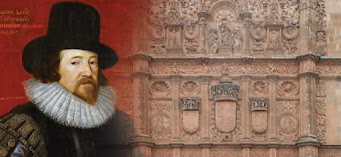Friday, March 29, 2024
Jesuit Britain?
Did Spanish
Scholastic thinkers influence British liberalism? You
can now access my Religion and
Liberty review of Projections
of Spanish Jesuit Scholasticism on British Thought: New Horizons in Politics,
Law, and Rights, edited by Leopoldo J. Prieto López and José Luis
Cendejas Bueno.
Subscribe to:
Post Comments (Atom)


American Jesuit universities up until the early 1970s had some of most learned and orthodox Catholic priests in the country. This is sadly, for the most part, no longer the case.
ReplyDeleteWhat happened?
DeleteI liked your article. One of the reasons early and pre-Enlightenment English thought spent so much time discussing Baroque thought was that it was the last hegemonic expression of the old Christian West. Those who would end that hegemony had no choice but to discuss the worldview they were deconstructing.
ReplyDeleteOn key doctrines of Enlightenment origin concerning state of nature (brutish, depraved), society (artificial, unnatural), and the ultimate end to which society's ends were subject (secular), Burke, Kirk and Scruton's Enlightenment loyalty was firm. It is indeed about time they were transcended.
I am willing to bet that Wawrzyniec Goślicki (or by his Latin name, Laurentius Grimaldius Goslicius) was also an influence, as his book "De optimo senatore" was apparently widely read and long popular in England (read by Elizabeth I, and known to Shakespeare who modeled Hamlet's Polonius after Goślicki's characterization of the incompetent senator). However, Goślicki, it seems, was not a fan of the Jesuits. Others who had read his work, or at least owned a copy, were Bellarmine and Jefferson.
ReplyDeleteSee also John Lamont’s essay “Conscience, Freedom, Rights”, which discusses the link between Counter Reformation (as opposed to St Thomas’) anthropology and Enlightenment thought.
ReplyDeletehttps://isidore.co/misc/Res%20pro%20Deo/Journals/The%20Thomist%20(1941-2024)/OCR-layer-only-PDFs/2009_Volume73_Number2.pdf
Not much use on this question. Lamont's study supports a model of ecclesiastical authority that is "analogous" to that of a political leadership over citizens. But this is a very Enlightenment idea of religion, in the Burkean and Maistrian sense. The Church of Saint Thomas is not comparable to civil society because it is a true person with a true mind, and no subsidiarity. Not surprisingly, Lamont bases himself on the modernist Nouvelle Theologie and therefore will also claim to be Thomist. Lamont claims that Baroque, or counter-Reformation thought, was defeated intellectually by the Enlightenment. This is false. It was defeated by politics and war.
DeleteThe less established it was (France in first place), the quicker Enlightenment ideas took hold. It was the War of Spanish Succession that opened the Baroque world to the Enlightenment, as Dawson explains.